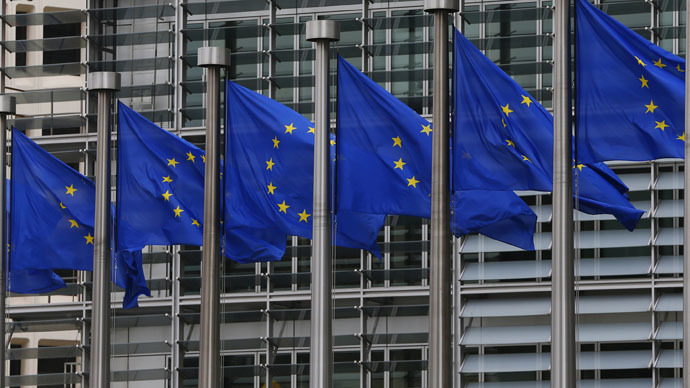EU foreign ministers extend sanctions against Russian officials, E. Ukraine rebels

EU foreign ministers have decided to extend targeted sanctions against Russian officials and the militias in eastern Ukraine until September, according to Federica Mogherini, the European Union High Representative for Foreign Affairs.
The first batch of sanctions, which was adopted last year and targeted specific individuals accused of fostering conflict in eastern Ukraine, was set to expire in March. The sanctions included travel bans and economic restrictions.
The EU Council has also requested that the European Commission expand the blacklist of individuals it blames for the escalation of the Ukraine conflict, Mogherini said after a meeting in Brussels on Thursday.
"We have shown that the EU is ready to take further measures and to prepare further measures in the weeks to come if the situation doesn't improve," she said.
The council, however, has refrained from imposing broader economic measures for now.
Greek Foreign Minister Nikos Kotzias said that Greece insisted on removing a passage which would have imposed new sanctions on Russia from the draft proposals at the ministers’ meeting. It also insisted that the final communiqué does not put direct blame for the Ukraine conflict on Russia.
German Foreign Minister Frank-Walter Steinmeier said the EU would need to send a clear message if the rebels in eastern Ukraine launched a full-blown offensive.
"If there were large military offensives, for example with widespread assaults on Mariupol, a clear reaction would be needed," he told reporters.
The ministers were widely expected to step up sanctions against Russia following mounting pressure after last week’s deadly Mariupol attack. The EU has moved to steadily increase sanctions and restrictions against Moscow since Crimea joined Russia last spring.
Journalist Neil Clark told RT that the lack of extremely harsh measures reveals a division within the EU ranks.
“What we’ve seen tonight is the evidence of a real split. We haven’t had these measures that some people wanted. For example, some of the more anti-Russian elements have been calling for Russia to be banned from the SWIFT banking system.”












